Are avocados fat or healthy?
Avocado is a heart-healthy food that includes fiber, polyphenols, vitamin A, vitamin E, monounsaturated fats, and polyunsaturated fats. Additionally, it has carotenoids that are good for the health of the eyes, like zeaxanthin and lutein. Additionally, avocados have phytosterols—plant chemicals that dissolve in fat—that lower levels of low-density lipoprotein, a heart disease risk factor.
1. Superfood status
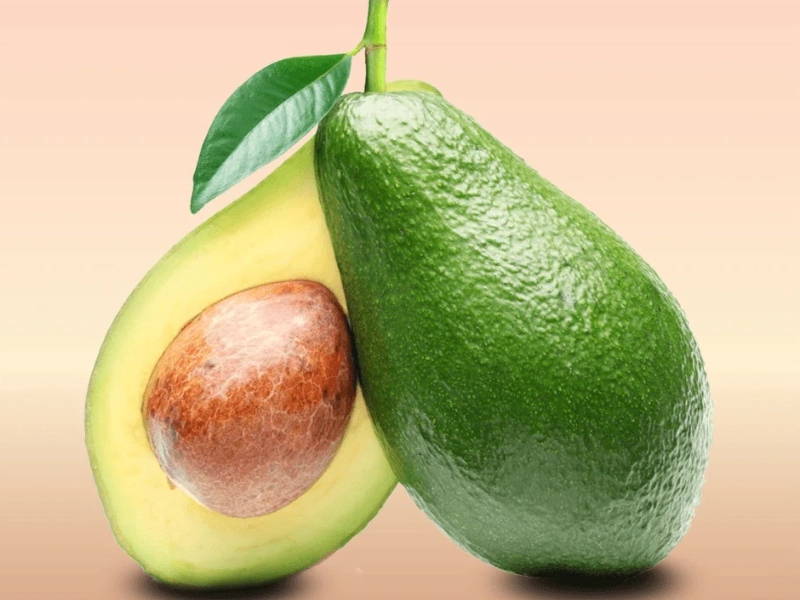 Avocado's nutritional composition has earned it the title of superfood. The creamy fruit is high in fiber, low in sugar, and rich in heart-healthy monounsaturated fat.
Consuming avocados as part of a diet may help lower blood pressure and cholesterol. Avocados are also a great source of potassium, folate, and vitamin K.
The good news about this fatty fruit is that most of its fats are in the form of monounsaturated oleic acid, which is good for lowering triglycerides and cholesterol. Avocados also give your body a number of other nutrients that improve health, like potassium, vitamin E, and vitamin B-6. Just remember to wash your skin before eating because it can harbor bacteria and other pathogens. Next, savor this delicious superfood. It can help with satiety, weight loss, and even the appearance of your skin when added to your meals.
Avocado's nutritional composition has earned it the title of superfood. The creamy fruit is high in fiber, low in sugar, and rich in heart-healthy monounsaturated fat.
Consuming avocados as part of a diet may help lower blood pressure and cholesterol. Avocados are also a great source of potassium, folate, and vitamin K.
The good news about this fatty fruit is that most of its fats are in the form of monounsaturated oleic acid, which is good for lowering triglycerides and cholesterol. Avocados also give your body a number of other nutrients that improve health, like potassium, vitamin E, and vitamin B-6. Just remember to wash your skin before eating because it can harbor bacteria and other pathogens. Next, savor this delicious superfood. It can help with satiety, weight loss, and even the appearance of your skin when added to your meals.
2. It has a lot of fat.
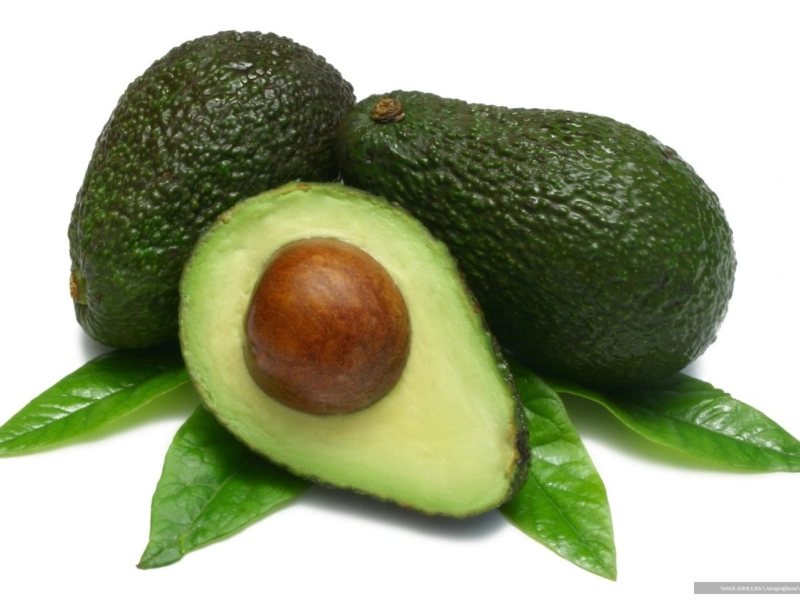 Avocado fat is beneficial as long as it is consumed in moderation. Heart-healthy monounsaturated fatty acids found in this fruit can help lower bad cholesterol and minimize insulin resistance. Additionally, avocados' high fiber content encourages fullness and aids in controlling cholesterol and blood sugar levels. In addition, it offers several other essential minerals, such as potassium and folate.
Consuming the proper fats will help you manage your weight, strengthen your skin, and strengthen your heart. Thankfully, the days of believing that fat was bad for you are long gone. In fact, eating healthy fats like those in avocados is becoming more and more socially accepted. (1)
Avocado fat is beneficial as long as it is consumed in moderation. Heart-healthy monounsaturated fatty acids found in this fruit can help lower bad cholesterol and minimize insulin resistance. Additionally, avocados' high fiber content encourages fullness and aids in controlling cholesterol and blood sugar levels. In addition, it offers several other essential minerals, such as potassium and folate.
Consuming the proper fats will help you manage your weight, strengthen your skin, and strengthen your heart. Thankfully, the days of believing that fat was bad for you are long gone. In fact, eating healthy fats like those in avocados is becoming more and more socially accepted. (1)
3. It has a lot of calories.
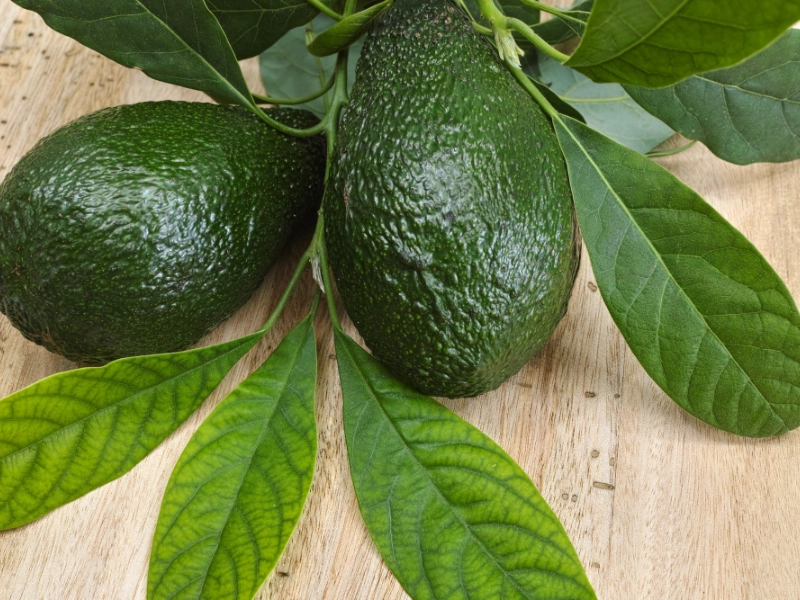 Avocados are high in calories, but they contain a lot of good fat, mostly monounsaturated fat. Avocados and many other plant foods, like olive oil, contain this kind of fat. It may improve the body's absorption of specific nutrients, including vitamin A and carotenoids. Avocado also contains a lot of potassium and folate. These two minerals can lessen the risk of kidney stones and counteract the blood pressure-raising effects of salt.
Because of their high fat content, avocados are often avoided, but registered dietitian Jenna Werner, R.D., suggests starting small and substituting avocado for high-fat foods like more cheese or mayonnaise. She also suggests making a nutritious spread or dip out of it, as well as adding flavor and texture to recipes.
Avocados are high in calories, but they contain a lot of good fat, mostly monounsaturated fat. Avocados and many other plant foods, like olive oil, contain this kind of fat. It may improve the body's absorption of specific nutrients, including vitamin A and carotenoids. Avocado also contains a lot of potassium and folate. These two minerals can lessen the risk of kidney stones and counteract the blood pressure-raising effects of salt.
Because of their high fat content, avocados are often avoided, but registered dietitian Jenna Werner, R.D., suggests starting small and substituting avocado for high-fat foods like more cheese or mayonnaise. She also suggests making a nutritious spread or dip out of it, as well as adding flavor and texture to recipes.
4. It has a lot of fiber.
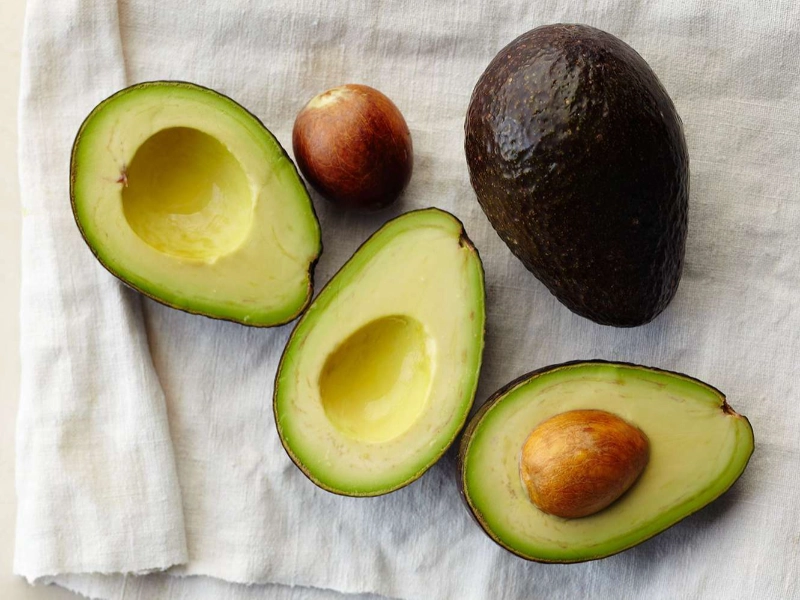 Because avocados contain a lot of fiber, they aid in regularity and digestion. Furthermore, a 2021 study published in the Journal of Nutrition claims that they are teeming with bacteria that ferment fiber and aid in the removal of toxins from the digestive system.
Additionally, they contain a lot of potassium, a mineral that helps lower blood vessel stress and balance blood pressure. They also include lots of heart-healthy monounsaturated fats and folate.
A single avocado may supply the majority of your daily fiber requirements, and adding avocado slices or pieces to salads is a wonderful way to replace calorie-dense croutons or condiments. Just watch out not to overdo it, as too much fiber can lead to constipation, bloating, and gas. 28 grams of fiber should be your daily goal.
Because avocados contain a lot of fiber, they aid in regularity and digestion. Furthermore, a 2021 study published in the Journal of Nutrition claims that they are teeming with bacteria that ferment fiber and aid in the removal of toxins from the digestive system.
Additionally, they contain a lot of potassium, a mineral that helps lower blood vessel stress and balance blood pressure. They also include lots of heart-healthy monounsaturated fats and folate.
A single avocado may supply the majority of your daily fiber requirements, and adding avocado slices or pieces to salads is a wonderful way to replace calorie-dense croutons or condiments. Just watch out not to overdo it, as too much fiber can lead to constipation, bloating, and gas. 28 grams of fiber should be your daily goal.
5. It has a lot of sodium.
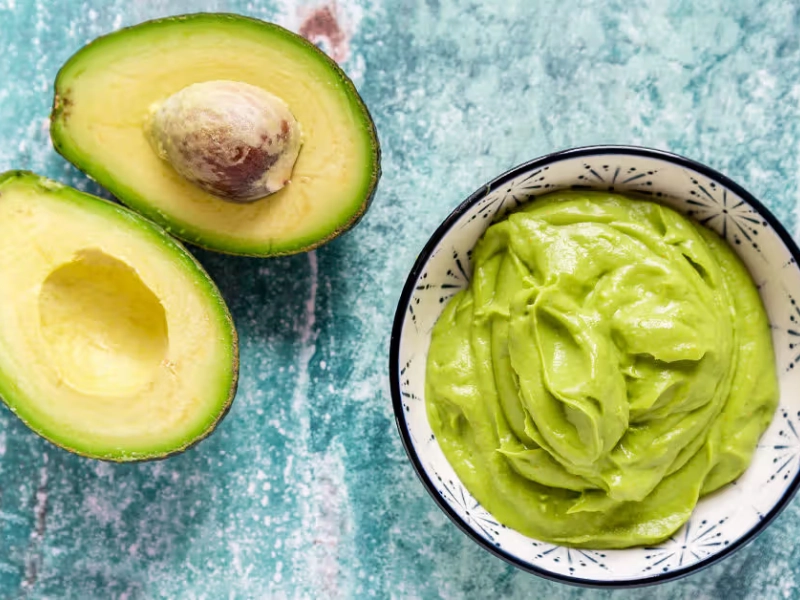 Potassium, a mineral found in avocados, has the ability to reduce blood pressure. Additionally, the monounsaturated fat included in this fruit may help lower levels of triglycerides and bad cholesterol. It's simple to use this healthy fat in cooked recipes because it doesn't change color when heated.
Eating two or more avocado servings per week is advised (one serving is equal to half an avocado). This could lower the chance of developing heart disease. According to a long-term study, individuals who had two or more servings of avocado each week had a 21% lower risk of heart disease than non-eaters of these beneficial fruits.
This fruit is rich in vitamins A and C, niacin, pantothenic acid, vitamin B-6, folate, calcium, magnesium, potassium, protein, phosphorus, and zinc, despite having a high fat content.
Potassium, a mineral found in avocados, has the ability to reduce blood pressure. Additionally, the monounsaturated fat included in this fruit may help lower levels of triglycerides and bad cholesterol. It's simple to use this healthy fat in cooked recipes because it doesn't change color when heated.
Eating two or more avocado servings per week is advised (one serving is equal to half an avocado). This could lower the chance of developing heart disease. According to a long-term study, individuals who had two or more servings of avocado each week had a 21% lower risk of heart disease than non-eaters of these beneficial fruits.
This fruit is rich in vitamins A and C, niacin, pantothenic acid, vitamin B-6, folate, calcium, magnesium, potassium, protein, phosphorus, and zinc, despite having a high fat content.











